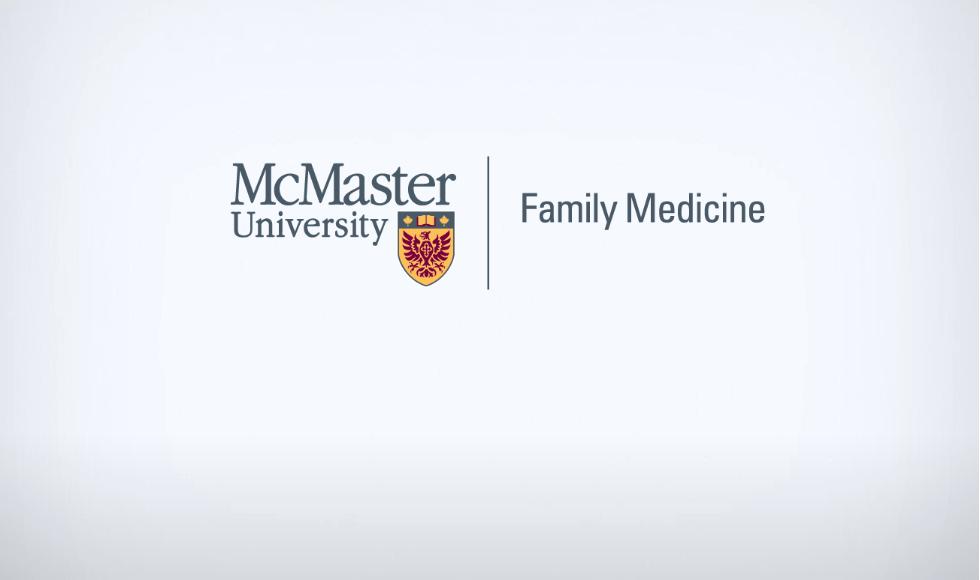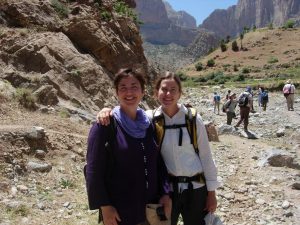The Morocco-Canada Network for Maternal and Infant Health


In October 2018, an interdisciplinary team from McMaster University travelled to Morocco to meet with local health care providers to work towards collaborative, interdisciplinary solutions to maternal and infant care.
The team was led by Ellen Amster, Jason A. Hannah Chair in the History of Medicine at McMaster University and Associate Professor in the Departments of Family Medicine and Religious Studies. Amster has been involved in fieldwork in Morocco for over 20 years, serving as an Arabic-French-English translator and working closely with local health care providers. In 2012, Amster developed a study abroad program at the University of Wisconsin which she recreated at McMaster. In 2016, Amster let 11 students to Morocco as part of an interdisciplinary global health field course.
With support from a CIHR Population Health Global Health Planning Grant, Amster was able to bring together 18 physicians, social scientists, and nursing/midwifery colleagues from Morocco and Canada. They discussed the determinants of health for Moroccan mothers and children, barriers to care, and challenges for Moroccan health professionals.
“Our ultimate goal is to support research and develop collaborative interventions with local community members, so Moroccan women’s preferences and voices shape their health care,” said Amster.
Demonstrating an interdisciplinary approach, Amster was joined by McMaster colleagues from Family Medicine (Lynda Redwood-Campbell, Keyna Bracken, Joyce Zazulak, and Dominik Nowak), Pediatrics (Anne Niec), Midwifery (Patty McNiven), and Health Aging Society (Lydia Kapiriri).
Over the course of seven days, the group traveled to three locations, ranging from urban Rabat and Marrakesh to the remote High Atlas Mountains, learning from local leaders and sharing their experiences from Canadian and global contexts.
The group heard from Moroccan midwives, physicians, nurses, and scientists about their experiences and research on women’s health, Muslim women’s rights, maternal morbidity and mortality, and the work of NGOs. The oldest AIDS NGO in the Middle East, Association de Lutte Contre le SIDA, uses Islamic law and cultural forms to frame their work with sex workers and AIDS prevention.
Next, they travelled to the remote High Atlas Mountains Zawiya Ahansal village cluster, an area off the water grid and far from health and state services. There, they visited health and environmental projects of Atlas Cultural Foundation (a US NGO) that works hand in hand with SMNID (a Moroccan Berber NGO). The team interviewed local Berber women as NGO leaders and patients and considered the community-based strategies these villages have developed in the absence of state resources.
“This trip adds to the global health work of family medicine,” said Amster. “The physicians were able to bring the lessons of primary care from Hamilton to Morocco, while also developing an awareness of the issues related to Muslim women’s health and sexuality.”
View a selection of photos from the trip
Presentations by DFM faculty:
“Maternal mortality in Aceh, Indonesia. A study of community inquiry” presented by Dr. Keyna Bracken
“Considerations for Maternal Child Health in Humanitarian Settings and Disasters” presented by Dr. Lynda Redwood-Campbell
“Self-Sampling for Group B Streptococcus in Pregnant Women: Is It Accurate and Acceptable?” presented by Dr. Joyce Zazulak
News, Research